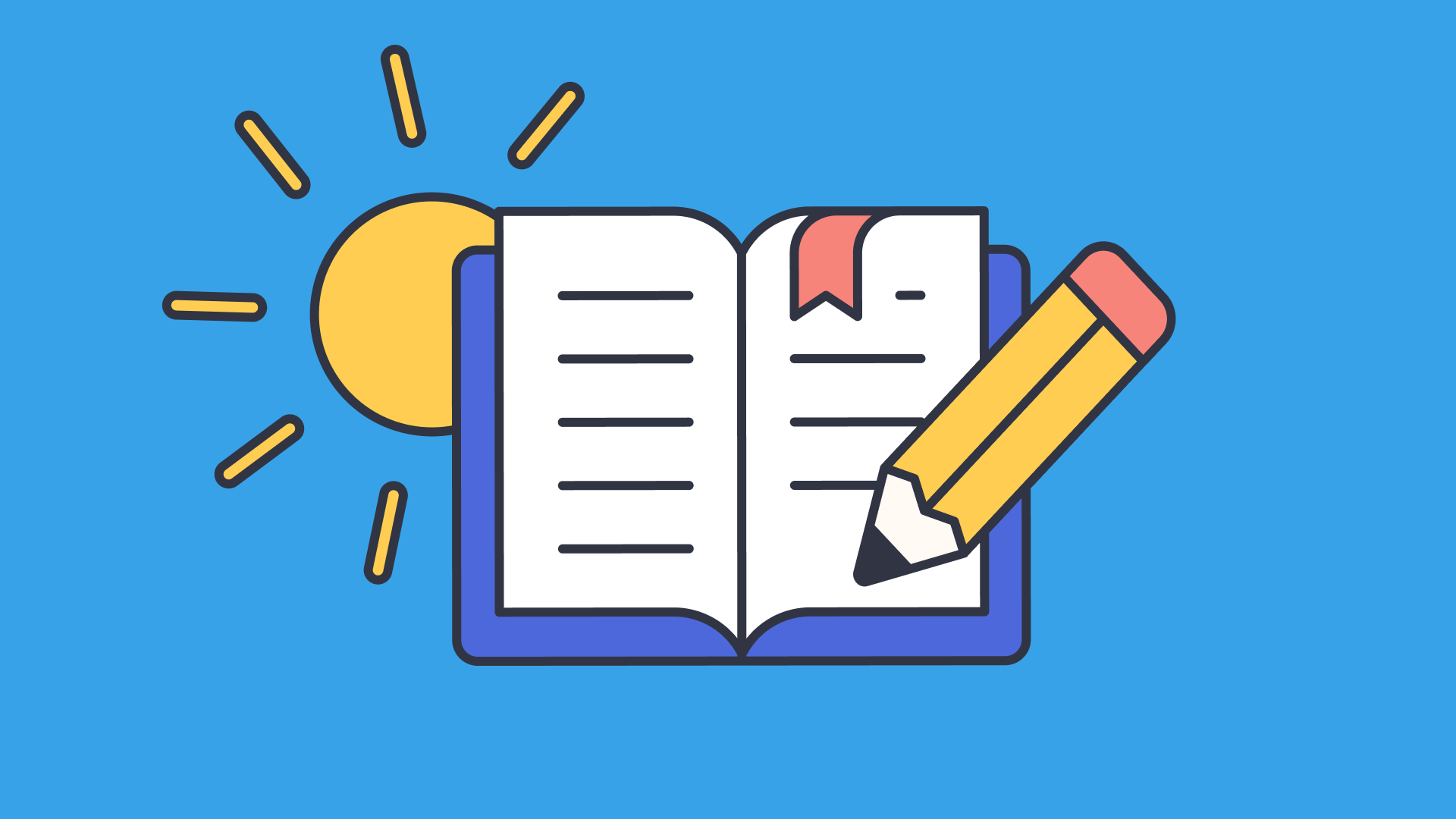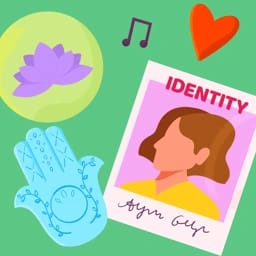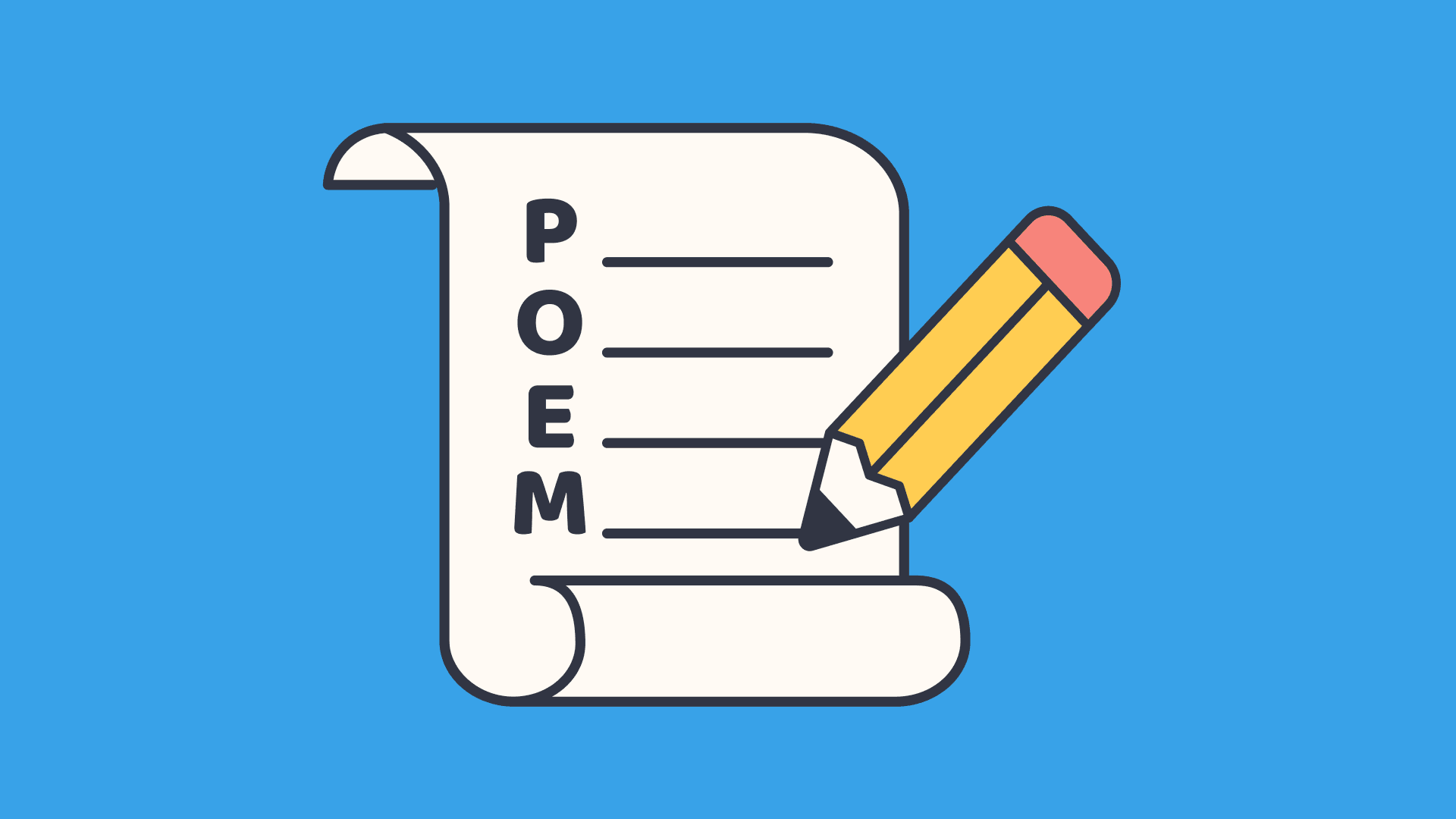5 Kinds of summer writing prompts for students
In this guide
Writing prompts are my tried and true solution to honing writing skills while helping students articulate their thoughts and feelings, so here’s a collection of prompts that are great for summer.
I’ve compiled a variety of writing prompts you could use to mitigate summer learning loss, develop SEL skills, or plan for the first or last day of school. There’s even a few ideas for students who struggle to feel inspired by writing.
1) Writing prompts and reflections to kick-off summer
The last few days, and even weeks, of school can feel tedious for everyone. As assignments come to a close, these writing prompts are a great way to keep students thinking and writing while also engaging with them on a personal level.
Assessing the school year
- If you had to choose one favourite memory from the last school year, what would it be?
- Describe one challenge you faced in the last school year. How did you address it? What did you learn from it?
- What was your favourite class/subject/activity last year? Why is it your favourite?
- Think about a project, essay, artwork, or assignment that you’re proud of this year. What was it that made this project special for you?
Planning for summer
- Think of one new skill you’d like to learn over the summer. Why do you want to learn this? What steps can you take to develop this skill?
Letters to the future
- Imagine this day/ one school year in the future. If you could write a letter to your future self, what would you write? What would you hope to have accomplished or learned this time next year?
2) Writing prompts for students returning from summer break

While the last days of school can sometimes feel tedious, the first days often fly past in a whirlwind of activity. Some students look forward to returning, while others feel it’s too soon.
These prompts are a great way to find a place for those first day (or week) jitters, whether they’re the bad or the good kind. They can help students settle back into the classroom, regulate their emotions, and, hopefully, share their summer experiences.
Letters to the past
- Think back to the first day of this school year/the first day of your last school year. If you could write a letter to yourself in the past, what would you write? Is there anything you’ve learned that could be helpful to your past self?
Sharing summer experiences
- What was your favourite thing to do during the summer break?
- Did you experience any hardships over the summer break?
- What song/movie/book represents your summer break best? Why?
- Did you accomplish any goals over the summer break? How did you do that?
3) Writing prompts for summer journalling

Encouraging or incentivising students to keep some kind of journal over the summer won’t just hone their writing skills–there’s a ton of benefits to regular journaling, so it could be a useful habit students take into their adult lives.
Journaling can reduce anxiety, help regulate emotion, and improve goal attainment. Studies have shown that journaling can even reduce healing time and improve physical health. While some students may prefer digital journalling (and I’d still encourage that over making journalling something they dread), writing by hand impacts the way our brains retain memory and learn new things.
Helping students find the right journal
Journaling, as a hobby, has a lot of enthusiasts and genres. Students that are less comfortable with writing may do better with scrapbook-style journals or journals that include illustration and art. Giving students creative freedom with journaling may make the habit stick, or peak special interests for neurodivergent students.
Bullet journals, or “bujos”, are highly customisable and a popular journalling method. The bullet journalling method was developed by Ryder Carroll as a tool for his ADHD, so it should respond well to evolving needs and flexibility in a mixed ability classroom. Older students may benefit more from this method, but using the bullet journal as a daily diary is a great starting point for all ages.
Art journals combine creative writing and visual art to make a unique, expressive experience. Art journalling is a great way for students to hone their artistic skills and experiment with different forms of expression.
Daily, weekly, and monthly summer journal prompts
- Find something {red/hot/funny/smelly/etc} today and document your experience finding it.
- Write about someone you met or saw today. What caught your attention and why?
- Pick three highlights of your day and record them.
- What was the best part of your day? What was the worst?
- Write about something you’d really like to do this summer.
Subject and special interest specific journalling
- Make a soundtrack for your day. What songs would include your soundtrack?
- Write a review for a book/tv show/movie or game you saw today.
- Make a step-by-step guide to playing your favourite game.
- How has been learning an instrument/attending sport practice/etc?
Calendar prompts
A great way to keep students writing all summer is by giving out a different prompt each day. Consider making a blank calendar template for summer and filling in each day with a prompt. These can be distributed before summer break and referred to again when the break is over.
4) Writing prompts during summer
Not all students spend summer away from school. Whether summer school is an elective choice or a period to catch up on academic progress, these writing prompts can be particularly helpful for summer school classes.
Creative writing prompts
- Write about today, but from the perspective of your toy/back pack/some non-human object.
- Interview a classmate. First, choose a few questions to ask them and then record their answers.
- Pick a time period you’d like to time travel to. Where would you go? What would you see and experience? Why did you choose this time and place?
Rose, Thorn, Bud
The Rose and Thorn is a great writing activity to close or begin a class. It helps students reflect and articulate their emotions. Giving time for students to share their prompts and seek advice from their peers can be an important step for this activity.
- Rose: a success, small win, or positive highlight of your day.
- Thorn: a challenge, setback, or stressful highlight of your day.
- Bud: something you’re looking forward to or an opportunity you’ve discovered.
If you have the time and students are comfortable with sharing, debrief the writing activity by inviting students to gather in pairs or small groups. They’ll share their thorns and ask for advice on how to navigate on them.
Make sure to collect the prompt answers, either in a handout that day or in a weekly or monthly journal check-in. Their answers can help you monitor their well-being and help you gauge on where support is needed.
Writing letters for charity
This is one of my go-to summer school activities, but its usefulness varies depending on the age and interests of your students. Letter writing campaigns and programs can help students discover new passions and interests, all while getting some volunteer hours under their belt.
5) Travel journals for the summer

Many students go on overseas trips in the summer, or may travel to stay with family and friends. Travel journals are a great way to keep them writing during the summer break. Scrapbooking and including photos, postcards, etc can encourage journalling for students that prefer other artistic mediums or are uncomfortable with writing in general.
Travel journals writing prompts
- Write a pretend postcard to your friend from your location or event.
- Write a review of a restaurant/park/hotel/hike that you experienced.
- What are some of your favourite outfits that you wore on your trip?
- Create a list of travel tips based on your own experience.
- Describe what you packed for your trip / what you bought on your trip.
For more inspiration on making the most of the summer break, check out 11 End of school year activities to start summer break. You can find more writing prompt ideas for Year 3 students or branch out to poetry, too.
References and further reading
- www.psychologytoday.com. (n.d.). Why Writing by Hand Is Better for Your Brain | Psychology Today. [online] Available at: https://www.psychologytoday.com/us/blog/evidence-based-living/202402/writing-by-hand-is-good-for-your-brain.
- Psychology Today. (n.d.). How to Start Journaling for Better Mental Health. [online] Available at: https://www.psychologytoday.com/us/blog/here-there-and-everywhere/202001/how-start-journaling-better-mental-health.
- www.scholastic.com. (n.d.). How Journaling Benefits Your Child. [online] Available at: https://www.scholastic.com/parents/books-and-reading/raise-a-reader-blog/how-journaling-benefits-your-child.html.

Amanda Joachim
briefcase iconEducation & Research Consultant
Amanda Joachim is an educational media consultant, researcher, and writer. Her interdisciplinary and creative approach is inspired by her own experiences learning and working in the Philadelphia school district.
Other posts
Want more content like this?
Subscribe for blog updates, monthly video releases, trending topics, and exclusive content delivered straight to your inbox.
















